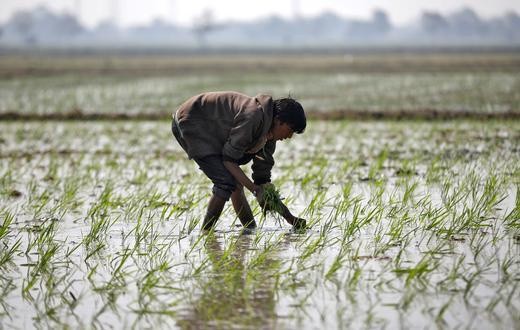UK Immigration Will No Longer Give Visas to Low-Skilled Workers

Britain plans to close its borders to unskilled workers as part of their vision to end cheap EU labor.
The British government urged employers to stop relying on "cheap labor" and invest in retraining staff.
The government introduced a new points-based immigration system on Wednesday which followed Australia's points system. The government said the new system will allow for "full control" of British borders and eliminate the "distortion" caused by EU freedom of movement.
Home Secretary Priti Patel said this new system would bring only "the brightest and the best" to the United Kingdom.
The new policy will allow the UK to close migration to workers with low skills.
The new scheme would require overseas workers to speak English and have 70 points to apply to work in the UK.
Points are given after achieving several factors.
Job offers from approved sponsors give 20 points.
Jobs at an appropriate skill level awards 20 points.
Speaking English at a required level gives 10 points.
A salary of £20,480 to £23,039 awards 0 points.
A salary of £23,040 to £25,599 equates to 10 points.
A salary of £25,600 or above is 20 points.
Jobs in a designated shortage occupation gives 20 points
A Ph.D. in subject relevant to the job awards 10 points.
A Ph.D. in a Stem subject relevant to the job gives 20 points
The government said it aims to make the UK "a high-wage, high-skill, and high-productivity economy."
The government said there will be no routes for lower-skilled or self-employed workers.ID cards from countries will no longer be accepted by border control.
"It is important employers move away from a reliance on the UK's immigration system as an alternative to investment in staff retention, productivity and wider investment in technology and automation," it said.
Employers are concerned about how this approach will affect the industry. The new approach might reduce good care for the elderly, raise prices for consumers, and introduce labor shortages.
Director of Policy at the Recruitment and Employment Confederation Tom Hadley said the new policy will shut out the people vital to businesses' wellbeing and growth. "We need access to workers that can help us look after the elderly, build homes and keep the economy strong," he said.
The policy drew criticism when waiters, waitresses, "elementary" agriculture workers, and fishery workers were added to the list of low-skilled workers.
Industry leaders said the system will likely have a huge impact on food processing factories. Supermarkets will also have face problems as many rely on EU workers to keep the shelves stocked with pre-packed goods.
The hospitality sector will also face a blow after the "no barista" visa is applied to coffee shops.
Hotels, businesses, and homes who rely on EU workers for cleaning, kitchen, chambermaid, and housekeeping tasks are also vulnerable.
The Royal College of Nursing said the new policy will make it harder to "meet the health and care needs of the population."
The UK Homecare Association said it was "irresponsible" of the government to push for a policy that lacks provisions for low-paid workers, saying the new system will have more people waiting in the hospital for a longer time, or going without care.
Labor's shadow home secretary Diane Abbott called the system "inhuman and damaging."
The policy is expected to ease through parliament with its 80-strong majority.
Subscribe to Latin Post!
Sign up for our free newsletter for the Latest coverage!

















